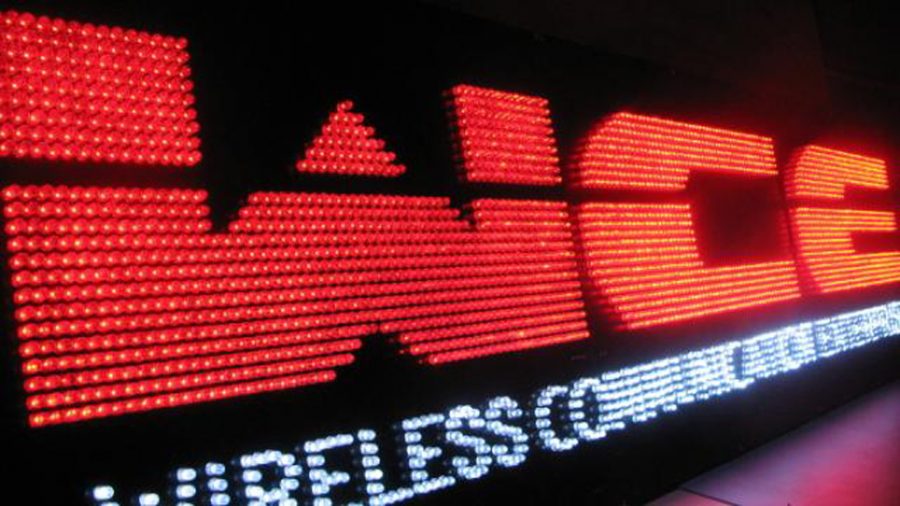
The Wireless Communications Enterprise Team and Kit Cischke generously shared their knowledge on Husky Bites, a free, interactive Zoom webinar hosted by Dean Janet Callahan. Here’s the link to watch a recording of his session on YouTube. Get the full scoop, including a listing of all the (60+) sessions at mtu.edu/huskybites.
What are you doing for supper this Monday 4/12 at 6 ET? Grab a bite with Dean Janet Callahan and Kit Cischke, senior lecturer in the Department of Electrical and Computer Engineering at Michigan Technological University. He’s also longtime advisor to Wireless Communications Enterprise (WCE), part of the University’s award-winning Enterprise Program.
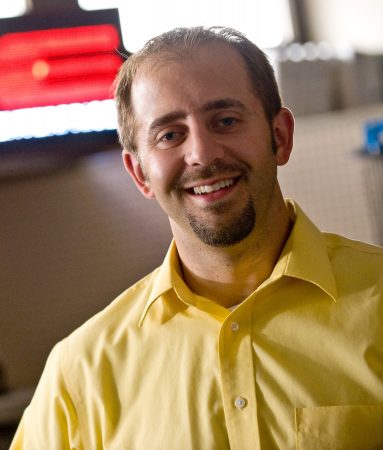
Joining in will be Abby Nelson, Ken Shiver, and Michael Patrick: all three are ECE students and senior members of WCE. During Husky Bites, they’ll walk us through their projects and share what it’s like for college students to serve industry clients—and think, work and operate like a company.
Part of the university’s award-winning Enterprise Program, WCE is focused on technology—wireless, optical, renewable energy and biomedical. The student-run enterprise works as a think-tank for companies looking to push their product lines to a higher level. And WCE members also work as entrepreneurs, taking their own ideas to a level where they can be useful for industry and consumers alike.
A student sits in the lab, soldering another LED onto the printed circuit board she designed herself and fabricated on equipment sitting not two feet away. A group puts the finishing touches on a setup for an experiment to detect water leaks in washing machines. Two students are at a computer, debugging code. A 3D printer hums away as yet another prototype is fabricated. Amid all this are students just sitting on the couch, discussing events of the day. It’s 10:00 PM on a Tuesday in the middle of the semester. Nobody has made these students come; they are here by their own volition. This is the Wireless Communications Enterprise.
“There’s no shortage of interesting and meaningful projects,” says Cischke. “Just a sampling: Android tablet programming with machine learning algorithms; machine vision algorithms; estimating the power contribution of anaerobic digester systems; and establishing a Bluetooth connection to a smart power tool. Some are explicitly wireless, others are not. Regardless, student leadership abounds.”
As an ECE instructor and WCE advisor, Cischke has the fantastic ability to make complex topics easy to understand. He does this through analogies, humor, and being open and approachable to students. He strives to be a “complete human being” with his students, sharing stories about his family and life.
During Husky Bites, Nelson, Shiver and Patrick, along with Cischke (WCE faculty advisor) will walk us through their projects and share what it’s like for college students to serve industry clients.
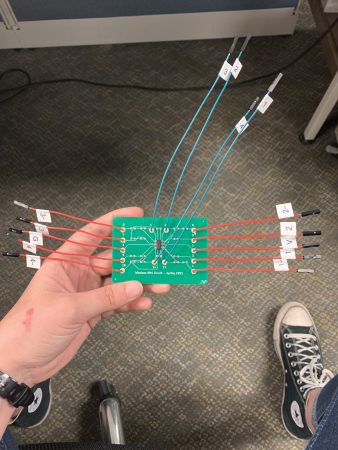
Cischke first came to Michigan Tech as a student in 1997. During his studies, he worked as an intern for IBM, verifying hard drive controllers in VHDL, and helped found one of the original Enterprise teams—the Wireless Communications Enterprise. He graduated in 2001 with a BS in Electrical Engineering, went to work for Unisys for about four and a half years and completed a Master’s degree in Computer Engineering at the University of Minnesota–Twin Cities.
“When I gathered in a classroom in 1999 with 40 fellow students to found a new Enterprise team, WCE, we couldn’t have imagined how it is today,” he recalls. “We had no space to call our own. We had no equipment. We had no clear projects. Over time, we found our footing and established our course,” says Cishke.
“I graduated into the ‘real world’ and found that the structure we were striving toward in WCE was the very structure found in industry,” he adds. “It was a considerable shock when I returned to Michigan Tech in order to teach—and found WCE had become an engineering company, composed entirely of students, only five years later.”
I watch the final presentation of a student who has been in WCE for four semesters and heading off to the “real world” now. There is no comparison to the student he was before WCE. He is older, wiser and more experienced. He has worked on a team and led a team himself. He is ready to make his mark on the world.
“When I was first asked to advise WCE students, I was intimidated,” Cishke admits.”The previous advisor had nursed the group through the formative years and had them operating at a state I couldn’t imagine sustaining. My fears were unjustified. I discovered that it takes active effort on the part of an advisor to upset the momentum the students have. Student leadership abounds. It’s not intimidating to be their advisor. It’s a pleasure.”
Kit, how did you first get into engineering? What sparked your interest?
Actually, it was Star Trek. Some friends got me watching it in high school and my hero was Geordi LaForge (the chief engineer on the Enterprise). I don’t know that I expected “real” engineering to be like a day in deep space, but I loved the technology and problem solving. I first came to Michigan Tech as a budding chemical engineer, but realized that I liked playing with computers more than chemistry and switched into electrical and computer engineering. It’s a field that I enjoy and is constantly changing.
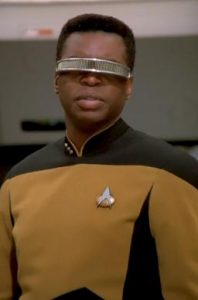
What was the best part of taking part in WCE?
The best part is working with the students and watching them do cool things. When I started as a student, there was a sense that we didn’t know exactly what we were doing. What was our purpose? What was our value-add to the department and university? Now, the program and the students practically sell themselves. They accomplish so much and are so driven to do it. I have the “grade stick” to hold over them, but most of the students are internally motivated.
Any hobbies? What do you do in your spare time?
Yes! I love bikes and the riding of bikes! I ride on mountain bike trails, paved roads, and gravel roads. I commute to the campus year-round on my bike—it’s far more possible than most people think. I’m a USA Cycling official too. When I’m not on a bike, I referee hockey, run, and I’m also learning how to do cross-country skate skiing and play guitar at my church.
Meet These Three Wireless Communications Enterprise Members at Husky Bites
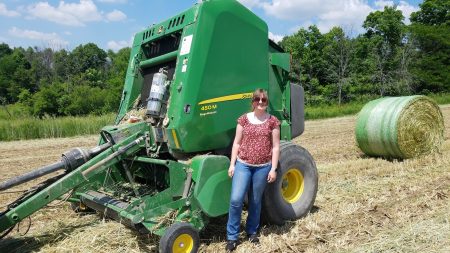
Abby Nelson ’21, Computer Engineering
Growing up I was always interested in how things worked. I caught onto computers pretty quickly. When I had to choose a college major, I chose computer engineering off the cuff. It turned out to be the right choice.
As soon as I walked on campus at Michigan Tech and saw the buildings and the people, I immediately knew that this was where I was going to go. In WCE, I’ve worked hands-on so much more than I would have in the classes I’ve taken in my major alone. I’ve met business connections and learned from other people, as well. WCE projects are student led (faculty advised), so there is a lot of problem solving involved in completing projects.
In my spare time, I enjoy biking, kayaking, and hiking around the UP. There are so many outdoor adventure opportunities, I wouldn’t trade this place for anywhere else. I will be graduating April 30th, 2021, and I am literally counting the days! Then I’ll move to Moline, Illinois to work at John Deere starting in May.
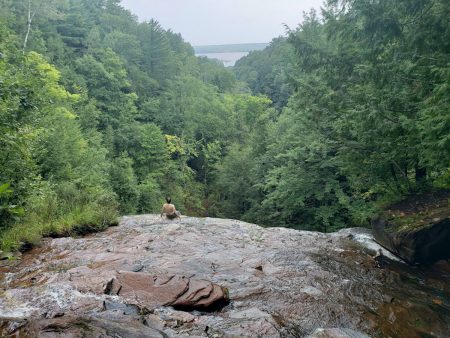
Kenny Shivers ’21, Electrical Engineering and Computer Engineering (Double Major)
During high school I took part in FIRST robotics. For those who aren’t familiar, every year a new game and game rules are released on the first Saturday of the year. Teams have six weeks during the “build season” to prototype, design, and build 120-pound competition robots to play against each other in 3v3 teams. After that come district, regional, state, and world championship competitions. All that fast-paced environment and creative problem solving got me interested in engineering. I ended up here at Michigan Tech as a result.
The best part about WCE are the people. This may sound a bit odd, since senior design or Enterprise are required to graduate. In WCE, those of us working on similar projects group together, which forms a sense of camaraderie. We’re all at Michigan Tech together and mostly dealing with similar problems. When it gets closer to the end of the semester, it’s crunch time, with more and more things to do on deadline. It’s a lot like a real job out in industry.
Like most Tech students I enjoy spending time outdoors and working with my hands. Last summer I stayed here in the Keweenaw because of the pandemic. I got an old, broken bike and fixed it up. It’s not a bike I would necessarily let someone else ride, but I know it well enough to trust it for myself. I also play piano and read a bit. Lately I’ve been focused on trying to make sure I have everything together to graduate and find a job. I’m actively looking for employment in embedded systems in Southeast Michigan.
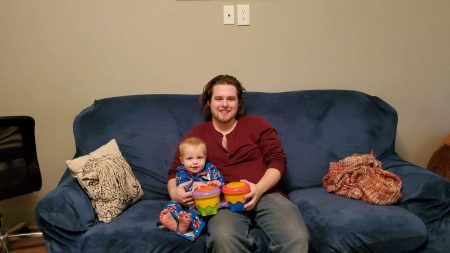
Michael Patrick ’21, Electrical Engineering and Computer Engineering (Double Major)
I first became aware of engineering from my mother, a Michigan Tech chemical engineering graduate. She homeschooled me during my early education years. Then, in my FIRST Robotics team in high school, I was on the controls and electrical team (FRC Team 1718, The Fighting Pi). From that experience I knew I wanted to pursue electrical and computer engineering.
The best part of WCE, for me, have been the lab space and the community. I have made good friends in WCE, and the lab space has allowed me to tinker with electronics using tools I normally wouldn’t have access to. Right now I’m using it to repair a bluetooth speaker for a friend of mine.
Outside of school and becoming a new parent, I have a passion for cooking and healthy eating. I began a plant-based pescatarian diet 3 weeks ago, and never felt better. I also enjoy teaching and tutoring. I’m looking forward to having a side job as an online tutor once I graduate. Right now I’m still on the job hunt, looking ideally for an embedded software engineering position. Once I establish employment, I intend to start my loan payoffs and take a few years off from education, before pursuing a graduate degree.